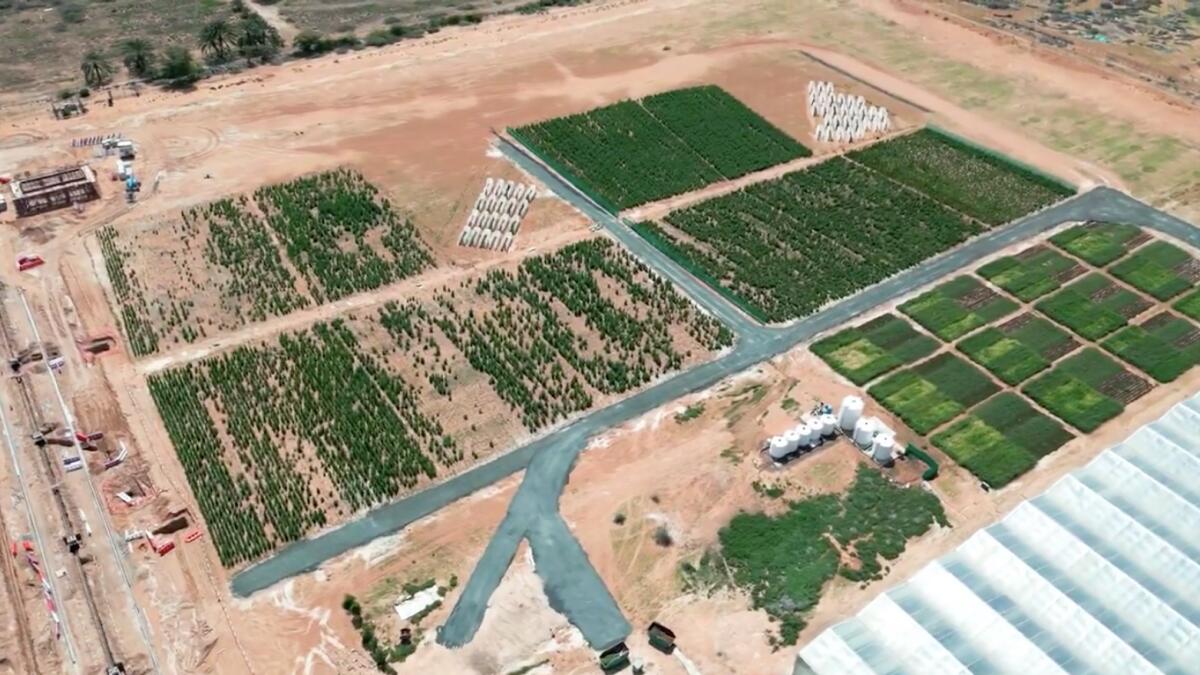ADQ, a prominent investment firm in Abu Dhabi, has recently announced a collaboration with the International Centre for Biosaline Agriculture (ICBA) and agri-tech food company Silal to conduct the first trials of cultivating quinoa in the UAE. This initiative is supported by a Dh100 million research lab and aims to provide local agricultural solutions through the development of innovative and drought-resistant varieties. Mansour Al Mulla, the deputy group chief executive officer at ADQ, expressed pride in supporting this research and highlighted the importance of such initiatives in enhancing food security and reducing reliance on imports.
Silal, the agri-tech food company involved in this project, is focused on developing technologies that promote sustainable agriculture and local production. By introducing new varieties of crops like quinoa, they aim to address food security challenges and make significant contributions to the UAE’s agricultural sector. The partnership between ADQ, ICBA, and Silal reflects a commitment to exploring cutting-edge agricultural technologies and solutions on a local level.
In a similar vein, Abu Dhabi has also witnessed the establishment of a groundbreaking indoor vertical strawberry farm, signaling a shift towards sustainable agriculture and local production. Mawarid, a subsidiary of Alpha Dhabi Holding, partnered with a California-based farming firm, Plenty, to establish the world’s first vertical strawberry farm outside North America. With an investment of Dh500 million, this project is part of a larger initiative to establish five farms over the next five years, aimed at advancing food security through technological innovation.
The joint venture between Mawarid and Plenty not only contributes to local production but also aligns with the UAE’s National Food Security Strategy 2051. By leveraging advanced agricultural technologies like vertical farming, the project supports the country’s vision for long-term food security and sustainability. Kashif Shamsi, the Group CEO of Mawarid, emphasized the role of Agtech in supporting the UAE’s agricultural goals and highlighted the project’s significance in the context of the newly launched Agrifood Growth and Water Abundance cluster (AGWA).
In a further display of agricultural innovation, a wheat farm in Sharjah is making strides in greening the desert and enhancing local production. Spread across 1,900 hectares, this farm has implemented sustainable practices and advanced technologies to increase wheat yields. With a focus on utilizing high-quality seeds and organic fertilizers, the farm has achieved significant progress in its second year of operation. This initiative not only contributes to local production but also demonstrates the potential for agriculture in arid environments through innovative techniques and investments in research and development.
Overall, these agricultural initiatives in Abu Dhabi and Sharjah underscore the UAE’s commitment to enhancing food security, promoting sustainable agriculture, and reducing reliance on imports. Through collaborations with international partners, investments in research and development, and the adoption of cutting-edge technologies, the country is paving the way for a more resilient and self-sufficient agricultural sector. By focusing on innovative solutions and sustainable practices, the UAE aims to address food security challenges and create a more resilient and sustainable agricultural sector for the future.










